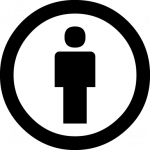
This module explores treatment options for depression that can be used alone or in combination with medications such as selective serotonin uptake inhibitors (SSRIs). This is important information because many patients with depression do not want to take medication but believe this is their only option.
Components of the unit include:
- Overview of commonly used integrative approaches
- Discussion of treatment benefits, indications, and contraindications
- Prescription guidance for supplements and behavioral treatments
- Resource materials for patients
- Demonstration videos highlighting common behavioral techniques
- A review of when emergency and non IM interventions are indicated
- Additional resources for physicians
- Links to further references
Learning Objectives
Knowledge Objectives - residents will understand…
- Which non-pharmaceutical approaches have proven beneficial in the treatment of depression (i.e., exercise, nutrition, herbs/ supplements, psychological therapy, relaxation therapy, light therapy).
- The indications and contraindications for use of exercise, nutrition, herbs/supplements, psychological therapy, relaxation therapy, and light therapy in the treatment of depression.
- The advantages/disadvantages of using non-pharmaceutical treatments in the treatment of patients with depression.
- How to determine the proper non-pharmaceutical prescription and/or dosage for treatment of mild to moderate depression.
- The side effects linked to several commonly-used treatments for depression.
- How to locate resources to support patient use of integrative therapies for depression.
Skill Objectives - residents will be able to…
- Access evidence-based information regarding the use of integrative therapies in the treatment of depression.
- Apply knowledge of integrative treatments for depression to a clinical scenario.
Attitudinal Objectives – Professionalism - residents will…
- Remain open to prescribing non-pharmaceutical treatments for depression in addition to, or instead of, antidepressant medication for patients with mild to moderate depression.
- Demonstrate openness to the idea that non-pharmaceutical treatments for depression can offer safe and effective treatment to some patients suffering from mild to moderate depression.
About the Creators

Amy Locke is a Clinical Assistant Professor of Family Medicine at the University of Michigan Medical School. She currently serves as the Director of Integrative Medicine for the Department of Family Medicine, coordinates the Integrative Medicine curriculums for the U-M Medical School and Family Medicine residency, as well as directs the Integrative Medicine Fellowship offered by the Department of Family Medicine.

Jump to:
| Document Title | Creator | Downloads | License |
|---|---|---|---|
|
5-HTP |
Amy Locke
|
||
|
Appendix I |
Amy Locke
|
||
|
Appendix II |
Amy Locke
|
||
|
Background |
Amy Locke
|
||
|
Exercise |
Amy Locke
|
||
|
Herbs and Supplements |
Amy Locke
|
||
|
Introduction |
Amy Locke
|
||
|
Light Therapy |
Amy Locke
|
||
|
Nutrition |
Amy Locke
|
||
|
Photo Attributions |
Amy Locke
|
||
|
Psychological Therapy |
Amy Locke
|
||
|
References |
Amy Locke
|
||
|
Relaxation |
Amy Locke
|
||
|
SAMe |
Amy Locke
|
||
|
St. John's Wort |
Amy Locke
|
||
|
Summary |
Amy Locke
|



